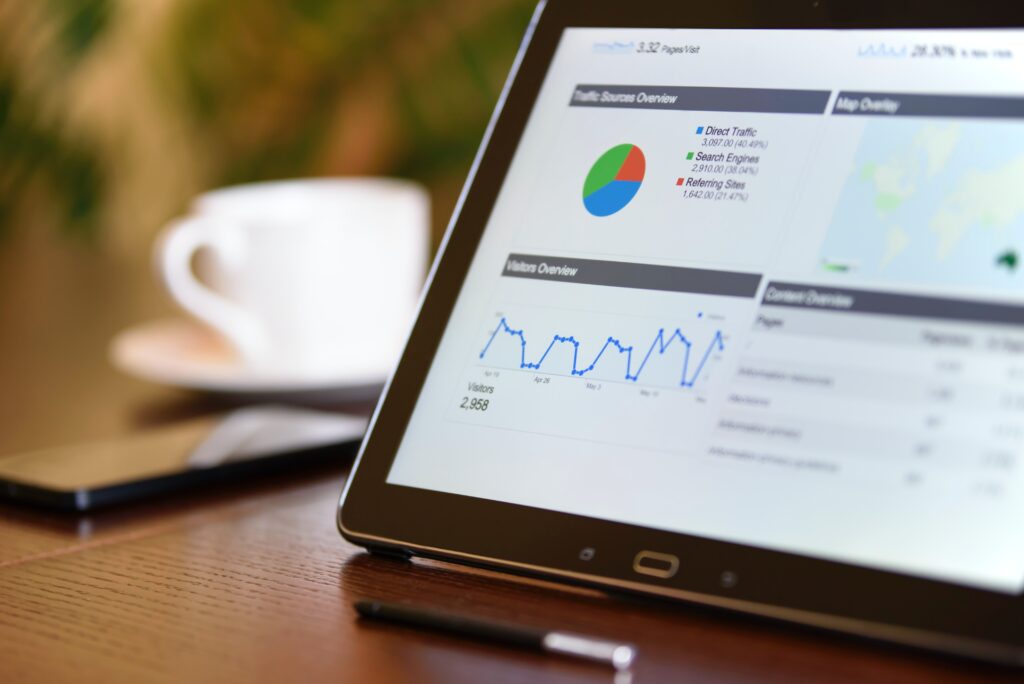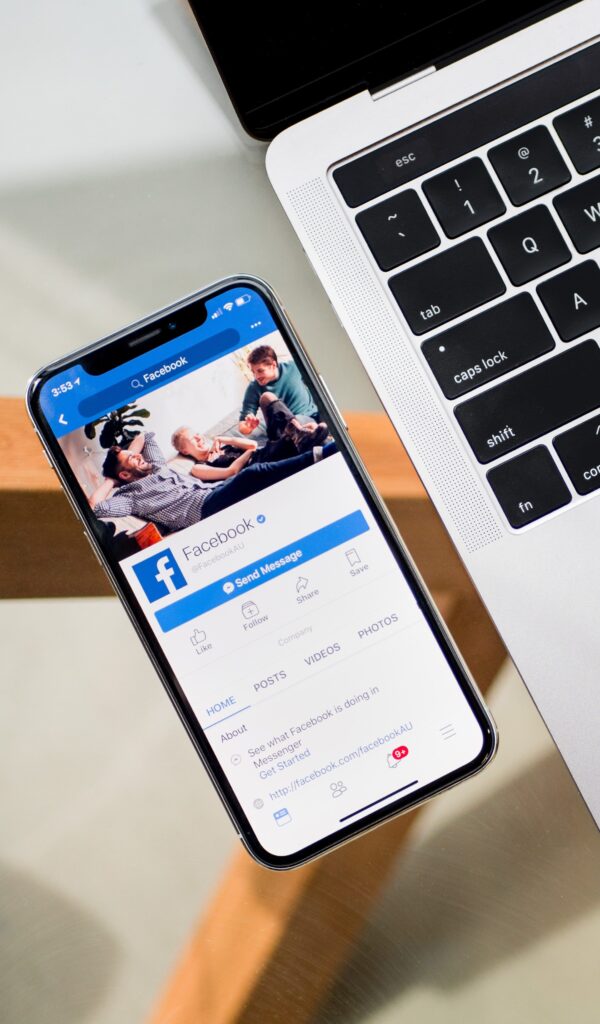The COVID-19 pandemic has disrupted a lot of things, and it’s had a profound impact on online marketing. While more people than ever before are turning to the internet in the wake of social distancing, those people are concerned about their finances and future and aren’t spending as much. You have a bigger audience to reach and interact with, but it’s going to be harder to convince them to connect and part with their money.
It doesn’t help matters that coronavirus has also had a big impact on manufacturing and shipping. Just because a business is online and open doesn’t mean that they have the stock to keep selling. Even businesses that already have healthy stock, or have ordered extra stock, are limited by the increased shipping times.
36% of retailers believe that COVID-19 will negatively affect their business.
Previously, we’ve covered the steps to optimize a company’s online presence in our basic quarantine checklist. If you have the basics—a website and social media— you will be ready to implement some fresh marketing strategies. We’ll address how the pandemic has affected ecommerce and online marketing, and how to brave the storm with effective online marketing strategies during COVID-19.

How Coronavirus Affects eCommerce
Whether you run a purely online business or use ecommerce to supplement a physical store, the coronavirus is sure to have some impact on your business. Even if your products have nothing to do with the virus, the wider economic impact of the pandemic is going to affect either you or your customers in some way. Over a third of retailers (36%) believe that COVID-19 will negatively affect their business.
Even massive retailers such as Amazon are having to change their strategy moving forward. Amazon is currently only taking shipments of essential items to their warehouses, which means that most Fulfilled by Amazon sellers are in the dark about how they can manage sales and shipping.
Amazon has also stopped offering paid search ads so that they can focus more on delivering essential products to the people that need them. People are more likely to see ads for healthcare and personal products, baby products, pet supplies, and groceries. Amazon — and other businesses — are looking for ways to turn the crisis into an opportunity to reach a bigger market share and broaden their appeal. Not everyone has the kind of money Amazon does, of course, but it’s still possible to create an opportunity for your business with the right marketing strategy.
Effective Online Marketing Strategies During COVID-19
1. Build an Email List
An email list is a great idea for any kind of business. These lists allow you to connect with customers and share important information with them. You can use the connection to share your story, highlight products and sales, promote your business, and turn subscribers into leads and customers.
If you have an email list then now is the time to use it. People are desperate for any kind of information right now. They want to know how your business is going to protect them. They also want to know that you’re taking care of your workers and are responding appropriately to what is happening. Let the public know how you are handling the pandemic and what your business plans to do in regards to employee safety and staying open.
Don’t have an email list? Start one now. It has a higher ROI than organic search and paid search, coming in with an ROI of $40 for every $1 spent. Figure out who your target audience is and find out where they are. Social media can be a great tool for this. Then, make sure your website landing page has an opt-in form for those interested to enter their email. Sweeten the deal by using a discount or free resource as incentive.

2. Boost Your Web Traffic
A website is the online representation of your business, and it is where your customers will be able to get their first impression. But, even the best website is wasted if you can’t target your core demographic. After you understand the importance of having a website, it is vital to consider the importance of being able to attract potential customers.
Blogging
There are lots of ways to get more web traffic, but blogging is one of the best. Just keep in mind there’s a lot more to a business blog than jotting down your ideas for the internet to see. Business blogs should help your business to stand out and become an authority in the industry. Platforms like Medium and Quora make it easier to share your business from a point of authority.
Another important part of blogging is being able to stay relevant and tap into trends. Much like with the email list, you can use your blog as a way to inform visitors about how your business is responding to coronavirus. Share pictures and videos of your staff working safely and taking the right precautions, if relevant.
Don’t forget the importance of SEO (search engine optimization) as you write your blog posts. SEO is always an essential part of online marketing. It’s one of your strongest tools when used properly. Feel free to hire an expert to take care of SEO for you, but don’t hire someone who makes promises that are just too good to be true.
If you plan on handling it yourself then make sure to avoid common mistakes such as keyword spamming. Don’t forget that the content has to be readable as well. There’s no point in writing something filled with relevant keywords if no one can read it.
Link Building
Remember to put together a robust link building strategy with your blog too. Include links to relevant sources of information, especially if you’ll be discussing the virus in any capacity. Reach out to other businesses and blogs and see if you can agree on a link sharing strategy. Backlinks add extra authority to your website and help to generate traffic. Before engaging with these strategies, it is important to have a website that represents your business in the best way. Luckily, it is easier than ever to update and innovate your business website.

3. Podcasts/Articles
As you’re thinking about posts and articles to put together, be sure to connect to appropriate sources and try to work together with them. Offer your expertise on an industry website or podcast, or have them offer something for yours.
Podcasts are a convenient and popular source of information and entertainment these days. There are lots of ways to get started with podcasting if you haven’t already. One common tactic is to turn a popular post into a podcast discussion where you can go into more information or bring on an expert to discuss the topic with you.
On the flip side, being a guest on someone else’s podcast means you don’t have to worry about the infrastructure of things. Let them worry about hosting and posting it. All you need to do is show up on time to the recording – whether it be physical or over VoIP/Skype – and promote it once it goes live.
4. Social Media

Social media will always be an important part of online marketing, and it remains a key part of online marketing strategies during COVID-19. Everyone is on social media these days, and people are turning to social media for their news and updates more and more. People are tracking how coronavirus spreads and listening to important updates and information through social media.
Take the time to build a healthy community on social media. You won’t see immediate results, but the long term gain is worth it. Cultivate a community that you can interact with and funnel to your website. Engage the community and talk about relevant things with them. It shouldn’t always be about your business though. People are likely to unfollow or ignore you if they feel they are just being advertised to.
As with online content, a useful part of social media is tapping into trends. For social media, that means using hashtags and addressing major news such as COVID-19. It’s not enough to just talk about the virus. Tell people what you are doing about the coronavirus and how your business is handling it.
Don’t be afraid to share information and advice from official sources such as the CDC and WHO. Right now, people want – and need – information, advice, and reassurance. You can give them all three through social media.
Need tips? You can have a look at our tips on how to master your online presence on Facebook. Marketing with Facebook and other social media platforms is essential for all businesses.
5. Google My Business Page
It’s important that your business has a Google My Business page. The page should be updated and optimized. A GMB page connects people to your businesses when they search for it on Google and online directories. Every Google my Business page needs to have NAP (Name, Address, and Phone Number) at the very minimum.
A GMB page serves as another point of communication with people around you. You can use the page to keep people up to date with your latest opening and closing information. Some businesses have temporarily shut down, while others are operating under restricted hours. Let the people know if, and when, they can visit your store in person. Optimize your page for local SEO and post regular updates.
Conclusion
COVID-19 has caused a lot of changes, some of which might be permanent. Some of these changes may be challenging, but they aren’t impossible. The difference between succeeding and failing in the face of coronavirus will be how your business handles changes and adapts to them. Do you want to sit back and hope things will get better in time, or do you want to be proactive and change with the times?
Keep these marketing strategies in mind as you look to change your online marketing strategy and move forward with your goals. Take time to address the public and their concerns and get people to see you as an authority and trust what you have to say. These strategies will pay dividends not just in the short-term, but in the long-term and well after the virus passes and things get back to being as normal as they can be.

